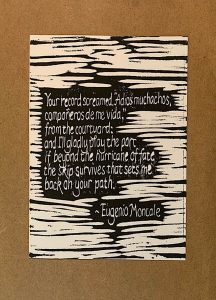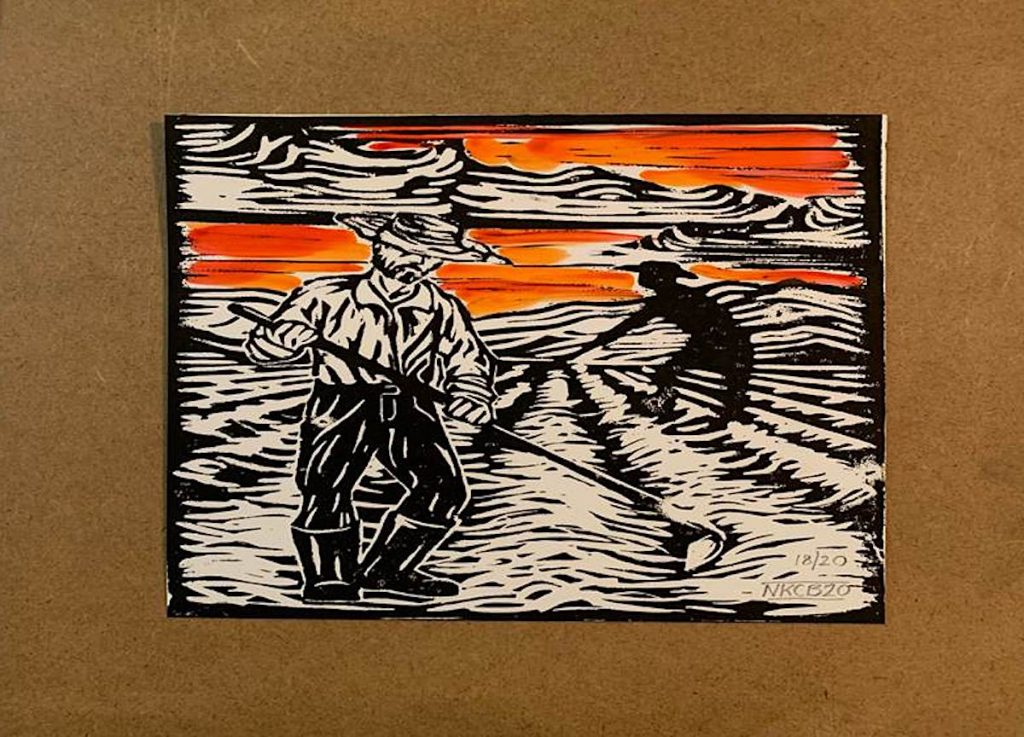2020 was a year marked by sickness, death, unrest, isolation, and economic difficulty — a year that has challenged the faith of many.
And so, one might ask: What good could come out of a year like this one?
So, for our final issue of 2020, Angelus invited a lineup of writers — some regular contributors, others guests — to reflect on how they've seen God's providence at work in their own lives during this difficult year. Their reflections will be published on AngelusNews.com from Dec. 21-24.
As the fog of COVID-19 began to descend on 2020, I found myself suffocating within my own bubble, beset by stay-at-home orders, riots, political turmoil, and perhaps the worst threat of all: the relapse of my mother’s cancer.
As one wave of turmoil upon the next beat against the metaphorical shore of my life, the riptide seemed to pull me further and further from myself. But, as I learned from a wise Italian, it’s when we begin to cry out, we realize we are crying out to Someone who listens.
As I didn’t have much mental bandwidth for common prayers, reading books, or watching movies, I turned to the simplest and shortest form that I could find for help: poetry.
I began to read voraciously and share what I discovered with others. Surprisingly, others responded, and in turn, people began suggesting different authors, and what began as a solo act eventually became a monthly Zoom poetry night organized around themes like, “The Only Cure to Loneliness is Solitude.”
It seemed others were also taking solace in the warmth of the verse: atheists and evangelicals, actors, musicians, and scientists. It was during the first stay-at-home order that I was turned on to the writing of Swedish economist and former Secretary-General of the United Nations, Dag Hammarskjöld.
In his 1963 book, “Markings,” he sums up the search for identity that rang particularly true for me at the start of the pandemic.
“At every moment you choose yourself. But do you choose your self?” was the first line of one particular journal entry that sent my companions on a search for more words that could help bring light to the present darkness.
It was during one of the darkest days of my mother’s battle with cancer, her sixth hospitalization in seven weeks, that I found myself manically scrolling Instagram looking for God-knows-what. That was the day that light broke in through a post in a language I didn’t even speak: Portuguese.
The way the lines were structured spoke to me and I hunted down the English translation of this line by the blue collar, would-be Brazilian mystic named Adelia Prado: “Once in a while God takes poetry away from me, I look at a stone and I see stone.”

Facing the grim reality of cancer during a pandemic, it was a freeing act of realism (and therefore faith) to call the stone the stone. As dark and dry as it got, my heart never stopped searching and there never failed to be a response, even in the unexpected form of an Instagram post in a foreign language.
Prado became my summer muse and her poetry was like being welcomed into a humid Brazilian “favela” (“shack”) and being offered an ice-cold beer after a day of walking under the summer sun.
And the journey has gone on like that: friend to friend, poet to poet, and heart to heart. I find myself willing to listen to anyone who has something real to offer, helping me overcome my own limits and see something new.
The most recent companion on the journey is the Italian poet Eugenio Montale, whose poem “In the Rain” has a line that sums up the end of this trying year and the hope for what’s to come.
“Your record screamed, ‘Adios Muchachos, campaneros de mi vida,’ from the courtyard: And I’ll gladly play the part if beyond the hurricane of fate the skip survives that sets me back on your path.”
If you have a personal story or experience in which you have seen God’s provide at work in this difficult year, please email us at [email protected]. Submissions will be evaluated and published as part of an ongoing series on our website.

